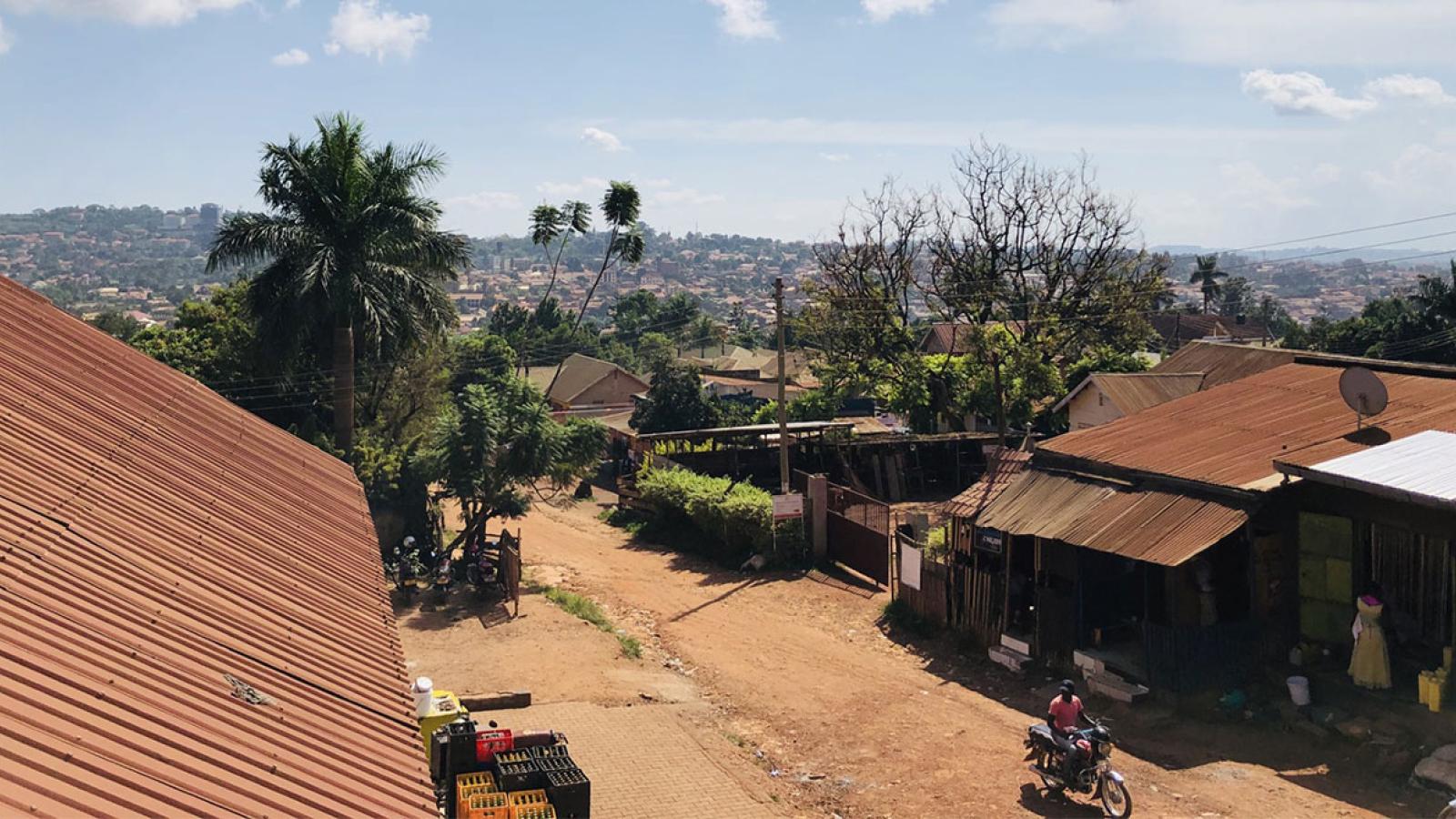Can financial redistribution shape attitudes toward refugees?
Policy changes that raise aggregate welfare, but whose benefits are unevenly distributed, are often politically unfeasible. Politicians may recognise the overall gains from refugee integration, for example, but block visas or permits due to local people’s fears about job losses. But might an approach which allows refugees labour market access, and redistributes to host populations some of the resulting savings in foreign aid or public finance, generate the necessary political support?

In 2022, over half of the world’s 40 million refugees and asylum seekers faced significant government-imposed barriers to the labour market, partly due to concerns that they would ‘take’ work from local populations. As well as costing refugees lost income, eroded skills and poor mental health, these restrictions also constrain aid. Without labour market access, the potential returns from development interventions are limited, meaning aid budgets are allocated to short-term humanitarian programmes, such as food aid.
Yet displacement is often long-term, and humanitarian assistance is generally more expensive and gives lower returns for both refugees and citizens than development assistance in the long run. When refugees can work, however, aid can be reallocated from humanitarian programmes for refugees to development programmes for both refugees and hosts. So might a policy which allows refugees labour market access and redistributes to local people some of the foreign aid or public funds saved as a result foster support for refugee integration?
Exploring public attitudes to refugees
To investigate, we ran an experiment in Uganda, which hosts over a million refugees and requires 30 per cent of international refugee aid to be shared with host communities – although public awareness of this “aid-sharing” policy is low. The country allows refugees to work, which could cause tensions with host communities who feel their own livelihoods are under threat. Between 2020 and 2022, we offered different programmes to groups of micro-entrepreneurs in Uganda’s capital, Kampala, to compare the role played by knowledge about the policy and by the direct receipt of aid in shaping policy views and attitudes to refugees.
The groups were randomly selected from our sample of 1,406 Ugandan micro-enterprise owners in the tailoring and hairdressing sectors – common sources of livelihood for both Ugandans and refugees, where they may come into direct competition. Through a local refugee-led implementing organisation, we gave the first group information about Uganda’s aid-sharing policy and its connection to policies facilitating refugee integration. We explained that part of foreign aid for refugees is shared with Ugandans, giving examples of public goods such as schools and hospitals funded by such aid, and inviting respondents to verbally share their views toward refugees.
For the second group, we augmented the information delivery with a “Labelled Grant” – a business grant of US$135, worth, on average, 3.5 months’ profit. We explained the grant as an example of compensation for Ugandans under the national aid-sharing policy. To address substantial existing evidence that attitudes to immigration are primarily driven by cultural, rather than economic, factors, we designed a third programme matching each micro-entrepreneur with a more experienced refugee business owner for one-on-one mentorship. This contact-based intervention allowed us to compare our two economically motivated interventions with one motivated by cultural concerns.
We also included three additional comparison arms to isolate potential influences on policy views: a business grant without information on aid-sharing or integration policies, to isolate any impacts of the aid itself; mentorship by an experienced Ugandan, to isolate the impacts of contact with a refugee mentor, and a pure control group which received no intervention.
Combining grants and information for impact
Compared to the control group, people in the Labelled Grant group showed substantially increased support for admitting refugees to Uganda and for policies that facilitate integration, such as the right to work and freedom of movement. These effects persisted for at least two years after our interventions began. The first “Information Only” group showed similar but smaller impacts. Receiving an unlabelled business grant also increased support for integration policies, but by less than a labelled grant.
To assess whether these impacts would alter political behaviour, we ran a telephone survey as a proxy for voting behaviour, asking respondents whether they wanted to support a letter to local officials expressing their approval of refugee hosting. Conducted by an independent organisation to reduce any effects stemming from expectations of future aid, the survey found that recipients of labelled grants were significantly more likely to support the letter than other groups in the experiment. This suggests that true policy preferences changed in the Labelled Grants group. Conversely, mentorship, either by a refugee or a Ugandan, showed limited average impacts on attitudes or business outcomes. After nine months, the short-term impacts of mentorship by a refugee on policy views did not persist, though in-person mentorship was shorter than intended due to COVID-19.
A visible demonstration of aid-sharing
To understand the mechanisms driving the impacts of labelled grants on policy views, we compared the effects of labelled grants to those of unlabelled grants, and to information alone. This suggested that receiving the grant, even without information about aid-sharing, impacted views through an association between the grant and the refugee-led implementing organisation, and by reducing resentment against refugees as major aid beneficiaries. Knowledge of aid-sharing without an associated grant also impacted policy views in this way. However, neither grants nor information alone matched the labelled grants’ stronger impact.
Our evidence suggests that this was not due solely to the private benefit conferred by the grant. The labelled grant amplified the impact of the information by serving as a visible demonstration of aid-sharing, which made the information more salient and credible. This suggests that redistribution is most likely to affect policy views when beneficiaries can clearly see the gains and attribute them to the policy.
Although evidence from other immigration studies across multiple settings shows cultural attitudes are a much stronger predictor of policy preferences than economic beliefs, our economic interventions – grants and information – had larger impacts on policy views. These impacts were strongest among Ugandans with either economic or cultural concerns about refugees at baseline. Labelled grant recipients were also more likely to express positive cultural views toward refugees. Our findings suggest that economic policy can influence views about immigration and reduce intergroup tensions by aligning competing groups’ incentives, regardless of whether opposition is rooted in economic or cultural concerns.
Redistribution in different contexts
These findings could apply in other settings, including neighbouring countries that host significant refugee populations and are considering similar policy bargains, such as Ethiopia and Kenya. Such approaches could also be scaled up. Many organisations already include host communities in their programmes, though few directly connect assistance to the refugee presence. In fact, hosts may believe that refugees are taking assistance that would otherwise be allocated to them. The marginal cost of delivering this information within an existing intervention would be minimal, and donors often offer additional funding for host countries that facilitate refugee integration, or will make long-term investments that include host communities.
Our findings could apply to other policies that offer economic benefit, but incur political opposition through the perception they create winners and losers, such as economic immigration and international trade. Redistributing the gains can be an effective tool to build political support, especially when the connection between the policies and the transfers is clear. For countries that restrict refugees’ labour market access due to concerns about crowding out local workers, this suggests combining integration policies with aid redistribution. Those like Uganda which already allow refugees to work and which share foreign aid with citizens could increase support for refugee integration by ensuring existing policies are widely known.
Further information
Travis Baseler, Thomas Ginn, Robert Hakiza, Helidah Ogude-Chambert, and Olivia Woldemikael (2023) 'Can Redistribution Change Policy Views? Aid and Attitudes Toward Refugees in Uganda'. CGD Working Paper 645, Washington, DC: Center for Global Development.

